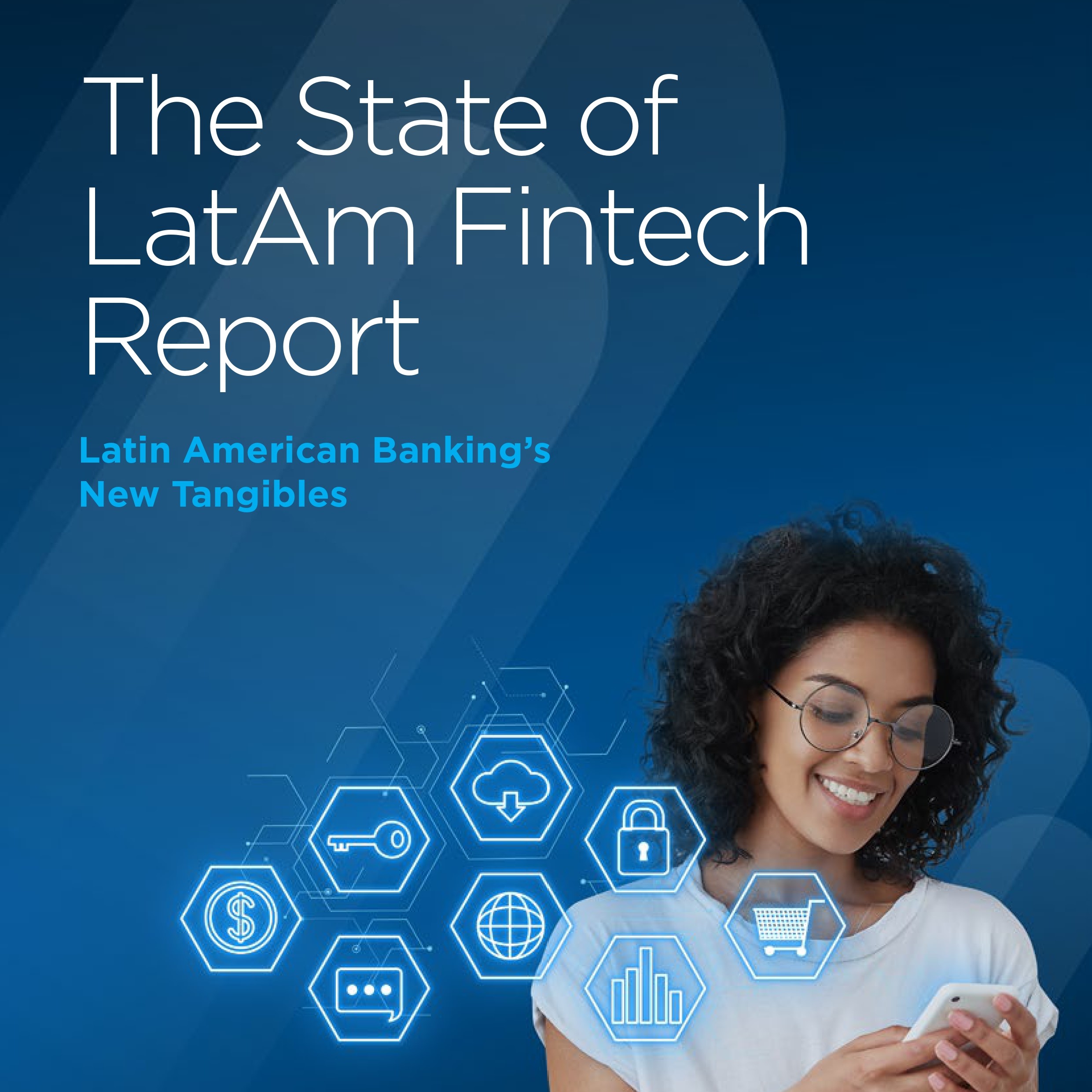The State of LatAm Fintech Report:
Latin American Banking’s ‘New Tangibles’ Revealed
- Research amongst 300 Latin American fintech decision-makers reveals banking’s ‘new tangibles’ – where future value will be created
- Banking inclusion represents fintech’s single biggest opportunity in Latin America; retail and agricultural sectors set to be principal beneficiaries
Sao Paulo/New York – 29 September ‘21 – ‘Financial inclusion’ represents the single biggest opportunity for fintech in
Latin America for 55.6% of fintech decision-makers, followed by ‘digital transformation of the entire sector’ (30.0%), and ‘boosting local businesses and start-ups’ (12.5%) according to new research published by LendIt Fintech and LatAm Intersect PR.
The research, completed amongst nearly 300 fintech professionals operating in Latin America, revealed the retail sector as the most likely beneficiary of the fintech transformation (for 59.7% of respondents) followed by agriculture (12.5%), and Government/public services (8.5%).
The findings also highlighted a clear consensus on the principal barriers facing the sector; 54.2% of respondents cited ‘the absence of a supportive regulatory environment’ as a ‘top two’ issue facing the sector, followed by ‘the availability of suitable staff/talent’ (31.5%).
Joy Schwartz, President, LendIt Fintech described the findings as a unique insight into the particularities – and opportunities – of the Latin American market.
“These represent the sector’s ‘new tangibles’; where value and growth will be created. Banking inclusion, for instance, is not an opportunity limited to so-called next generation banks and financial institutions. 56.8% of respondents from the b2c ‘traditional’ banking sector highlight this as fintech’s ‘single biggest opportunity’; certainly these organizations’ future will be determined by their ability to adapt to the same,” said Joy.
“The importance of the agricultural sector – as revealed in the research – is another case in point. 21.3% respondents from wealth management cite the sector as a principle beneficiary from fintech, along with 20.0% from B2B banking/finance, nearly double the all-respondent (average) rate of 12.6%. A clear indication of where future investment (and funding) opportunities will be directed in the region,” she added.
One divergence of opinion emerged regarding the impact of fintech on local businesses and start-ups. Only 10.3% of B2C respondents believe that fintech was likely to benefit local businesses compared to 30.0% of their B2B counterparts.
“This is probably a reflection of their respective priorities – B2B obviously seeing the potential multiplier effect of retail. However, the two sectors are clearly linked – every (B2B) entrepreneur is also a potential (B2C) retail customer; and vice-versa. It’s at this intersection – between banking inclusion and economic growth – where the real opportunities lies.”
Roger Darashah, Founder Partner of LatAm Intersect PR, explained that the region’s ‘new tangibles’ would be less about physical or traditional assets such as a physical branch network, or established brands.
“More than a third of the respondents (37.5%) cited trust as a crucial requirement to assure customer adoption of fintech solutions, while 56.0% highlighted friends and family as the principal source of the same. This perfectly encapsulates the challenge and opportunity facing fintech in the region; the sector’s ‘new tangibles’ will be as much based on people’s level of confidence in new platforms, their comfort with respect to issues such as data privacy and security, as with technical or, even, regulatory compliance in a formal sense,” he said.
Roger added that trust and reputation were not merely client service issues, they would define new fintech’s relationships will all stakeholders including investors, local regulators and also employees.
“The lack of talent was cited as a particular concern for B2B respondents (40.0% compared to an all-respondent average of 31.5%), with disciplines such as data analytics and new age technology (big data, artificial intelligence etc) being particularly in demand. Fintech’s ability to recruit the brightest and best talent will also be determined by its reputation. We already know the importance millennials and Generation Z candidates place on deriving purpose and meaning from their work. These are the type of ‘new tangibles’ that the sector will have to demonstrate whether recruiting new clients, employees or investors in the region.”
The State of LatAm Fintech Report: Latin American Banking’s ‘New Tangibles’ is available in full here:
https://pages.lendit.com/2021-state-of-latam-fintech-report.html
About LendIt Fintech
LendIt Fintech is a global media and events company. We immerse ourselves in all things fintech so we can be your guide and help you make sense of this rapidly changing world.
For more LatAm fintech insights, register for LendIt Fintech LatAm – Latin America’s leading event for innovation in financial services taking place December 7-8, 2021 at the Loews Miami Beach.
https://www.lendit.com/latam/2021/
About LatAm Intersect PR
LatAm Intersect PR is a public relations firm specializing in corporate and consumer campaigns for clients across the Latin American region.
‘Intersect’ refers to our central tenet: in a world of big data and automation, the ability to connect with people on their terms, to inform and persuade them of a particular point of view through relationships, evidence and discussion is more important to businesses than ever.
We help clients leverage their intersections with audiences ranging from customers and employees, to business partners and investors across the region.
www.latamintersectpr.com
Research was conducted in Jun/July ’21 amongst 297 fin tech professionals operating in or serving Latin American markets (including lenders, financial service companies/platforms, technology providers and professional support (legal, consulting etc))














